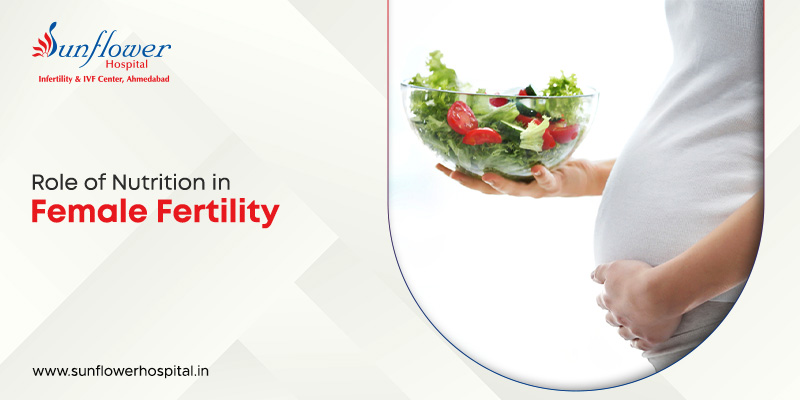Fertility and infertility are common topics of discussion for couples planning to conceive. For women planning to undergo IVF treatment, we, as the best IVF center in India, recommend considering the factors that improve their chances of success.
Although several factors influence female fertility, one that deserves special attention is nutrition. Thus, in this blog, we will discuss the complex relationship of carbohydrates, fatty acids, and proteins with fertility.
Carbohydrates
Carbohydrates, known to be a major source of energy in humans, are responsible for regulating insulin-mediated glucose and glucose metabolic pathways. They vary from simple sugars or monosaccharides to complicated molecules such as polysaccharides and some oligosaccharides. The GL (Glycemic Load) and GI (Glycemic Index) are values reflecting the influence of carbohydrates on blood sugar levels.
GL reduces upon consuming non-digestible complex carbohydrates like the ones found in whole grain eatables or soluble dietary fiber. Good whole-grain consumption is linked with greater pregnancy and live birth rates. Similarly, doctors advise increasing the intake of vegetables as they improve the quality of the embryo after ICSI (Intracytoplasmic sperm injection).
Moreover, a diet with a total carbohydrate content of less than 45% is known to help with symptoms of PCOS (polycystic ovarian syndrome) by increasing the presence of SHBG (Sex Hormone Binding Globulin) and FSH (Follicle Stimulating Hormone) and decreasing the levels of insulin and testosterone. All of this is correlated with weight reduction in obese or overweight PCOS patients.
In the case of a hypocaloric diet wherein half of the calories come from carbohydrates, a higher number of ova were recovered. As a result, good clinical pregnancy rates were recorded in infertile women undergoing IVF treatment in India. On the contrary, a higher intake of sugary sodas is lightly linked with a reduced number of embryos acquired, and ova recovered, declining the live birth rates.
Fats
To a certain extent, fats are present in almost every food. Still, certain eatables like fish, especially tuna, mackerel, sardines, and salmon, along with seeds, nuts, and plant oils, are rich in Omega-3 polyunsaturated fatty acid (?-3 PUFA). Omega-6 (?-6) is abundant in oils, seeds, nuts, meat, eggs, and fish.
There is no strong evidence stating the influence of fats on IVF. But, consuming foods rich with ?-3 PUFA may positively affect the chances of conceiving. However, it is best to take professional guidance about foods to eat and avoid during IVF treatment.
Proteins
A fit adult is expected to intake 0.8g/kg of protein for every kilogram of their body mass. Animal protein, in comparison with plant protein, increases the chances of ovulatory disorders. On the contrary, 5% of energy derived from consuming vegetable protein can decrease the chances of ovulatory disorder by 50% or more.
In addition, consuming soy and dairy products positively influences the results of IVF. It is because soy includes phytoestrogens, an isoflavones type with a structure similar to estrogen, which is responsible for the weedy estrogenic activities with the help of receptor binding.
Wrapping Up
Without a doubt, a good diet and nutrition can benefit female fertility, ultimately increasing their chances of conceiving. However, as the best fertility hospital in India, we suggest women to manage stress, avoid alcohol and tobacco, and maintain weight, as these significantly impact fertility.


Leave a Comment